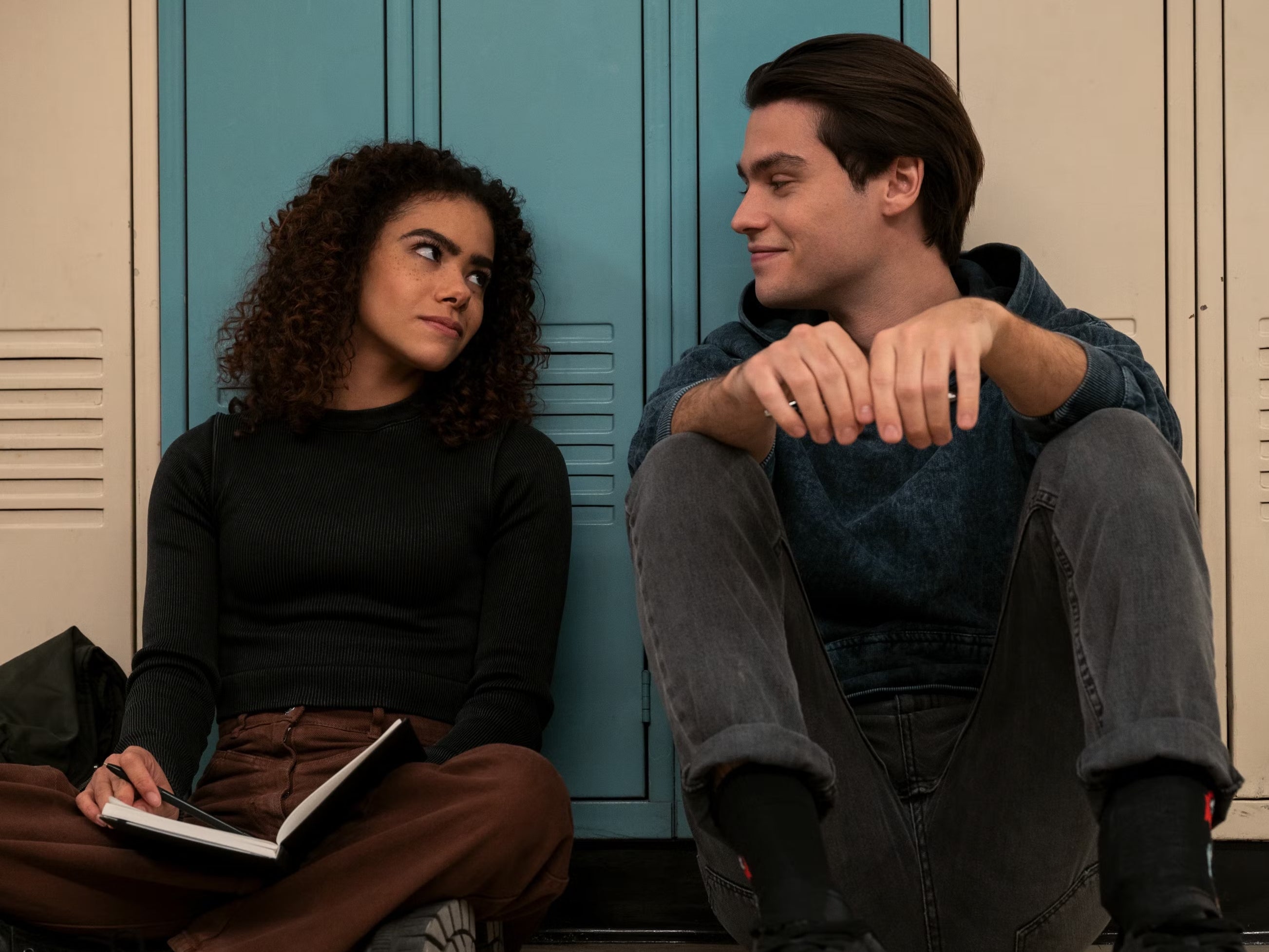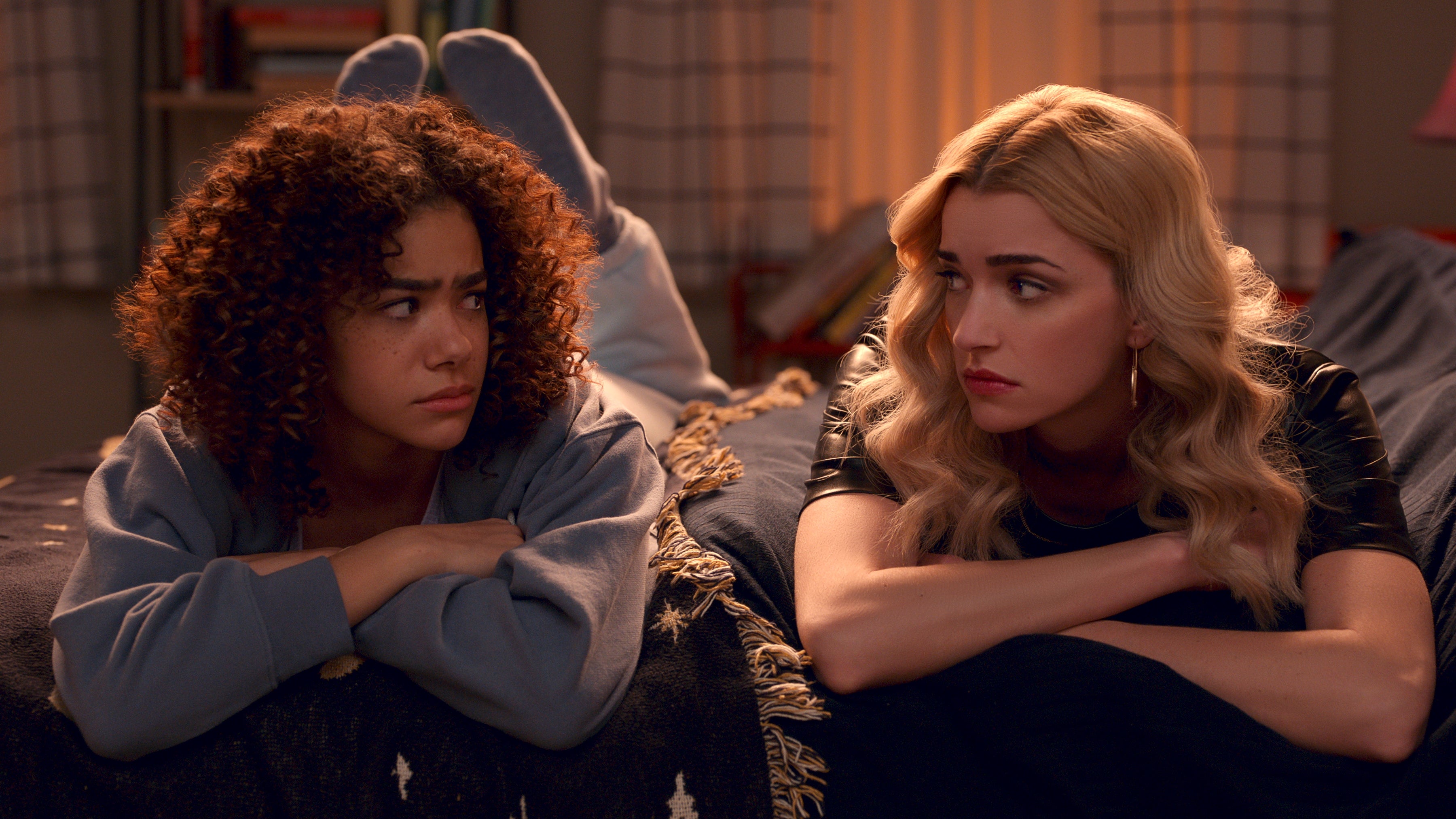Why I can’t stop watching one of Netflix’s most cringey, awkward shows
With the ridiculous comedy drama’s poor reputation preceding its second season, Inga Parkel explores how ‘Ginny & Georgia’ has managed to sustain viewer interest


Your support helps us to tell the story
From reproductive rights to climate change to Big Tech, The Independent is on the ground when the story is developing. Whether it's investigating the financials of Elon Musk's pro-Trump PAC or producing our latest documentary, 'The A Word', which shines a light on the American women fighting for reproductive rights, we know how important it is to parse out the facts from the messaging.
At such a critical moment in US history, we need reporters on the ground. Your donation allows us to keep sending journalists to speak to both sides of the story.
The Independent is trusted by Americans across the entire political spectrum. And unlike many other quality news outlets, we choose not to lock Americans out of our reporting and analysis with paywalls. We believe quality journalism should be available to everyone, paid for by those who can afford it.
Your support makes all the difference.High school is bad enough without your boyfriend tap-dancing down dimly lit classroom corridors, shimmying his way over to wish you a happy birthday. But that’s just the kind of secondhand embarrassment that characterises Netflix’s cringe-fest comedy-drama Ginny & Georgia. And yet, this globally derided show, which gives audiences the TV equivalent of the ick, has somehow conquered the US’s Top 10 Most-watched list.
Brianne Howey stars as young mother Georgia, who’s constantly on the move with her best friend and teenage daughter Ginny (Antonia Gentry) and young son Austin (Diesel La Torraca), in order to stay two steps ahead of her dark past. Just when she’s finally relocated them to a quaint Northeastern suburb in the hope of finally putting down roots, her lies begin to surface. The story unfolds through a wealth of absurd cliffhangers and plotlines, in which significant themes of mental health and racism are explored.
Upon its season one premiere in February 2021, the show instantly aligned itself as a wannabe Gilmore Girls. And not so subtly, either. “We’re like the Gilmore Girls, but with bigger boobs,” Georgia proudly boasts to Ginny in its debut episode. But unlike its dreamy, feel-good predecessor, which was largely warmly received, Ginny & Georgia was torn apart on social media for its awkward scenes (another declaration of love in the form of a subpar public serenade) and horrific dialogue (“If only you had an ass, you’d be perfect.”). This peaked in its eighth episode, when Ginny, who is mixed race, and her half-Taiwanese then-boyfriend Hunter (Mason Temple) challenged each other to an “Oppression Olympics”.
In recent years, Netflix has found incredible success in its trashy canon of shows, offering audiences an unrestrained escape from the humdrum realities of everyday life. Viewers have been whisked away to the City of Love in Emily in Paris, where Lily Collins dresses in colourful abundance to cushion her quarter-life crisis. They’ve also been transported to Virgin River’s pithy small-town, Hallmark Channelesque drama, with its gorgeous mountainous landscapes and predictable romance storylines.
So, instead of bingeing another show about the true-to-life anxieties of, say, the service industry, a la The Bear, why not disappear into the unrealistic depths of Ginny & Georgia which, in the latter, has a protagonist who has miraculously walked free despite having killed a number of her ex-husbands and framed one for embezzlement and fraud? And given that soap operas and shoddy reality shows have long reigned supreme, such storylines no longer seem so outlandish.
But after a disastrous first season riddled with painful dialogue, it was hard to see how the show could redeem itself – and yet, confoundingly, the newly released second season has shown a marked improvement in quality. Viewers are still watching it – its spot in the top 10 is proof.
Fans had been prepared to mock Ginny & Georgia once again upon its return – myself included – but many have been pleasantly surprised to find season two is not only more entertaining, but more digestible. As one noted on Twitter: “They dialled down a lot of the weird writing. It’s way better.”

That’s not to say it’s completely void of its former cringey dialogue – in fact, there’s still plenty of it. (“How did you even learn how to play the piano? Didn’t you grow up, like, super poor?”). Its handling of touchier subjects, though – depression, self-harm and biracial identity – is done with much more respect this time around.
No longer is Marcus (Felix Mallard) flatly depicted as the stereotypically depressed, brooding, antisocial teen boy. Rather, his moments of happiness are tinged with a creeping sadness. His voiceover even poignantly divulges later on that his breakup with Ginny came not due to the absence of love, but because “being loved takes work too”.

Watch Apple TV+ free for 7 days
New subscribers only. £8.99/mo. after free trial. Plan auto-renews until cancelled

Watch Apple TV+ free for 7 days
New subscribers only. £8.99/mo. after free trial. Plan auto-renews until cancelled
Meanwhile, Ginny’s desire for her emotional pain to be seen and heard, which manifested in self-harm, is met with proper parental concern: she’s put in therapy. And her struggle to understand her place in the world as a Black woman in a predominantly white town and family is addressed in the safety of her home with her Black father.
So, in a strange turn of events, although Ginny & Georgia fans came for the cringe, this time around they’ve been met with a show that’s actually risen to a decent quality. Perhaps it won’t be competing against Succession or Abbott Elementary at the 2023 Emmys; there’s still a healthy dose of teeth-clenching to be done in each episode – but isn’t that why we partly, secretly, loved it in the first place?
‘Ginny & Georgia’ is available to stream on Netflix now
Join our commenting forum
Join thought-provoking conversations, follow other Independent readers and see their replies
Comments